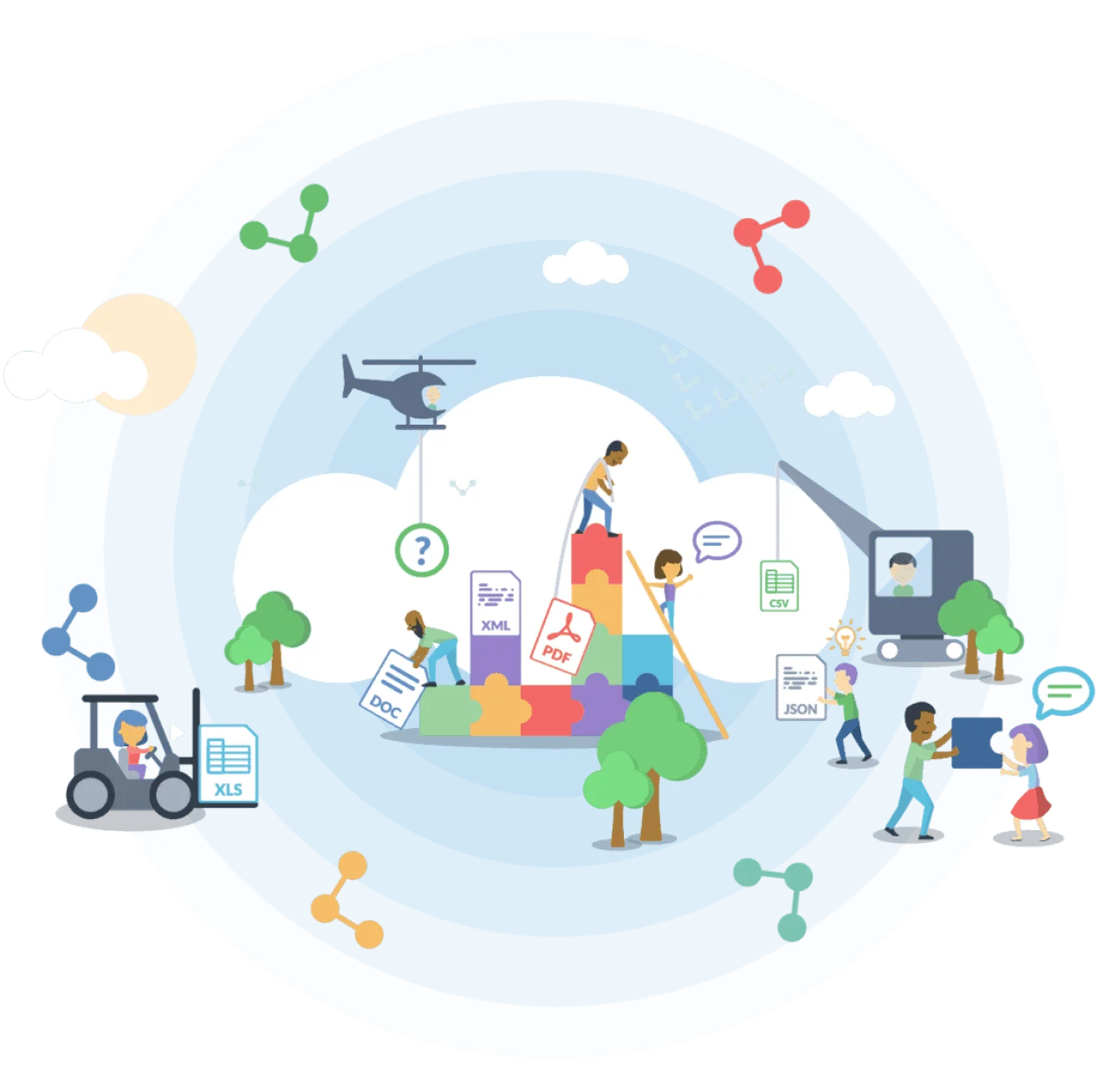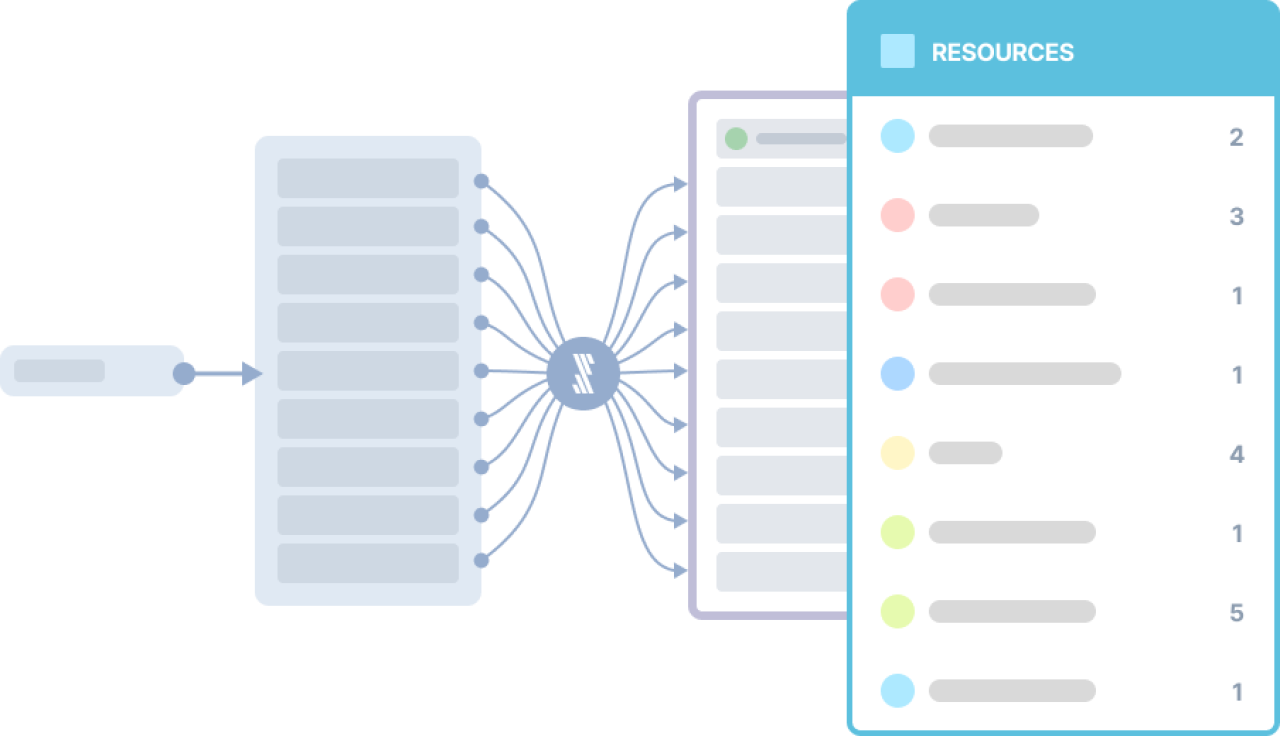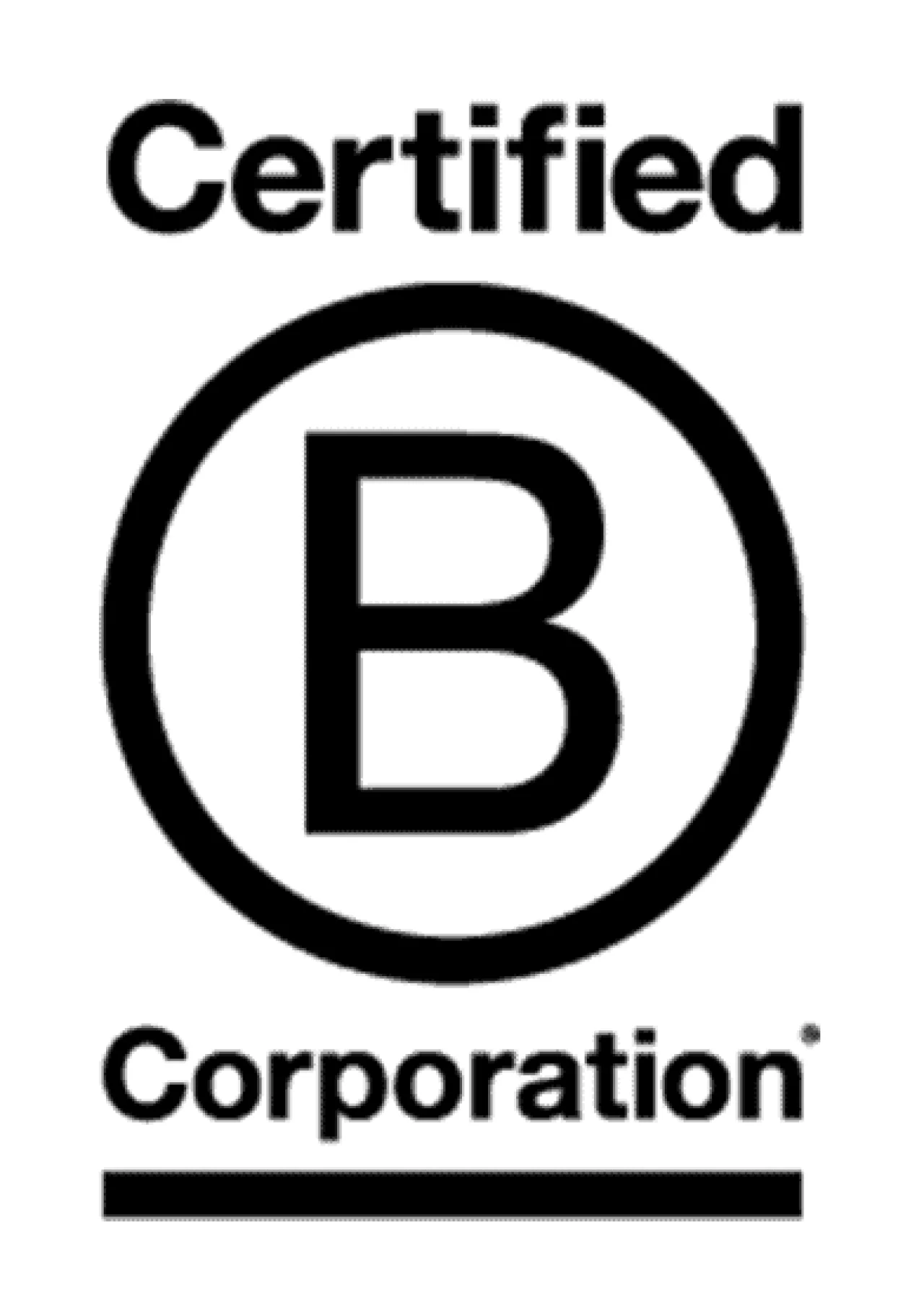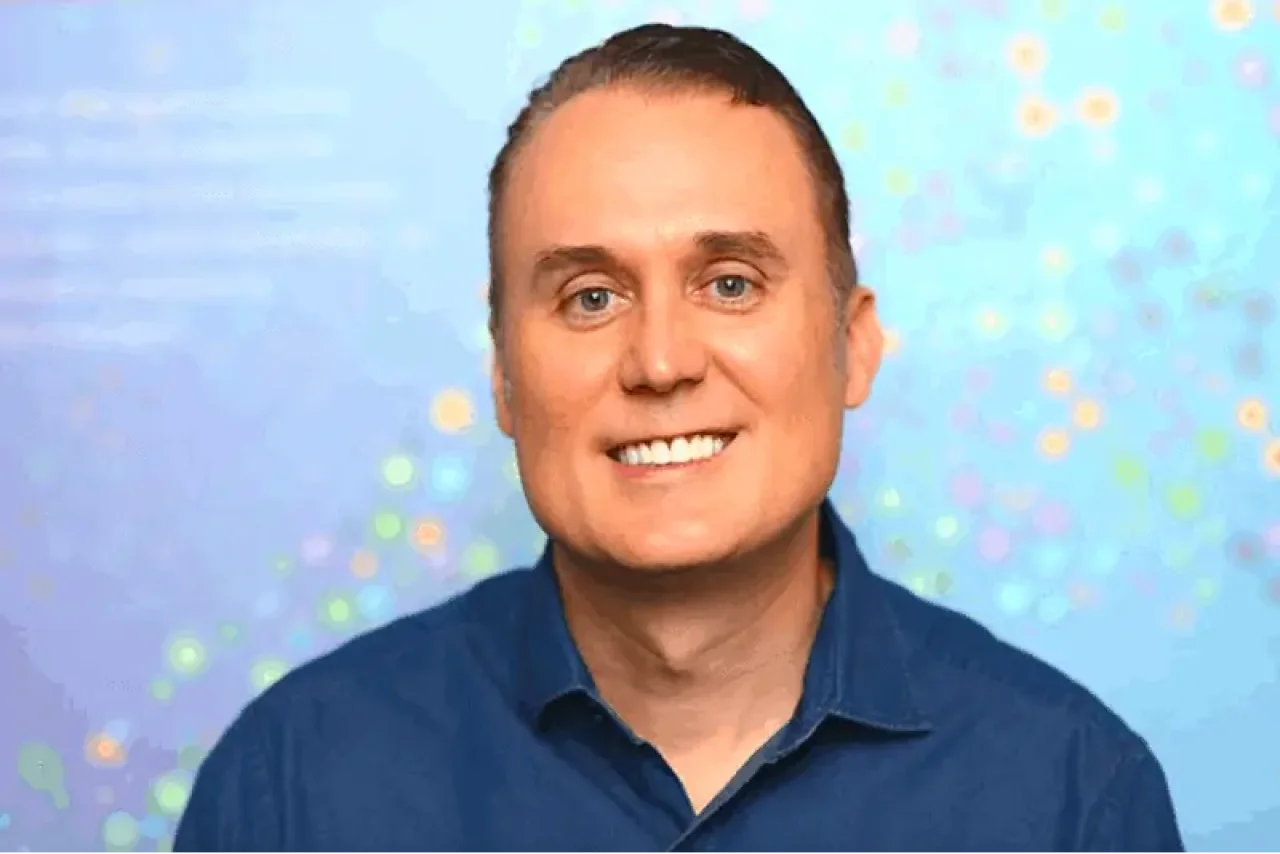
























A PBC is similar to a traditional corporation in that it is a for profit corporation with shareholders who own the company and its assets. The key differentiator is that a PBC also has a clear mission to consider the impact of its actions on society. This means that a PBC can make decisions to do the things “for the good of humankind” which are set forth in its charter (and are given the legal protection to do so). As a result, a PBC can balance that mission with the pursuit of shareholder returns rather than being forced to maximize shareholder value at all costs.

While we are incorporated in Delaware since it was one of the early adopters of the PBC structure, we have since had a hand in bringing this structure to Texas, and look forward to the day when it becomes the accepted norm among new businesses globally.
As a part of our PBC status, we’re obligated to give periodic updates to our shareholders on the status of our PBC purpose. However, we feel very strongly about the value of transparency and strive to be as open as we can with our community, which is why we’re sharing this report with all of you.


Strive to build the most meaningful, collaborative and abundant data resource in the world in order to maximize data’s societal problem-solving utility,

Advocate publicly for improving the adoption, usability, and proliferation of open data and linked data

Serve as an accessible historical repository of the world’s data.
At data.world, our commitment to innovation and transformation goes beyond our technological advancements in helping organizations prepare their data for an AI future and deliver trusted Generative AI for their data; it extends to the positive influence we strive to instill in the world. As a certified B Corp and Public Benefit Corporation, we are proud to embrace the power of data to drive meaningful change.
Engaging with data.world is an invitation to join a global movement for social impact. Through our open community platform, one of the world’s largest, individuals are empowered to find, share and connect open data - fostering collaboration to solve pressing social issues.
We are proud to partner with multiple organizations through open data social impact projects, we actively contribute to the proliferation and development of open data assets, addressing critical issues aligned with our pillars of support: innovation, sustainability, equity, health, and education.
Our thought leadership initiatives are a deliberate effort to ignite change through education, advocacy, and engagement. Through our social impact blog, we are navigating the intersection of technology, data, and social change, highlighting key organizations through our data partner series. We offer immersive educational experiences through training, tools and resources, and engaging speaking events. This approach fosters a network of impact collaborators who share our core values, amplifying the reach and impact of our mission.
As we reflect on the past year and look toward the future, data.world remains steadfast in cultivating a learning environment, aiding organizations in comprehending the transformative potential of data. We invite you to explore this report and join us in our ongoing mission to build the most meaningful, collaborative, and abundant data resource in the world.
We’ve undertaken an ambitious journey to unleash the potential of data by bringing together that data and the people who are interested in it. We’re happy to report some of the advances we’ve made on this front.
We believe in the power of open data and are building a network of mission aligned organizations to drive data for social good.
With dozens of key strategic partnerships, we are galvanizing efforts to leverage data as a force for positive social change.
As of January 1, 2021, each hospital operating in the United States is now required to provide clear, accessible pricing information online about the items and services they provide in two ways:
As a comprehensive machine-readable file with all items and services.
In a display of shoppable services in a consumer-friendly format.
Unfortunately, beyond this statement there was very little guidance on how that should be accomplished. As a result the actual implementations of this data were very scattered and disparate, often being hard to find or use in any sort of aggregate way. data.world has undertaken an initiative to help clean and consolidate this pricing data so that consumers and researchers alike can examine and use it to a positive outcome. We’ve already created a framework and an ontology to help map this data and have started onboarding hospitals. This project is ongoing, and is welcoming anyone who would want to consume the output or help to maintain or grow the underlying infrastructure.
We continue to invest our time and efforts in sourcing and hosting high-value communities and datasets with a goal of promoting social good, social change, or other impactful areas. We believe this data can help researchers and data enthusiasts of all kinds identify, understand, and combat challenges in today’s social landscape. In this vein, we continue to develop a resource type we dubbed a “Data Resource Hub” which helps to aggregate and feature high value data around a particular subject. Our first initiative on this front was for the Coronavirus pandemic (which has now been sunsetted), and we are continuing to explore other large societal issues for which data can help inform, educate, unite and provide solutions.
If you have a topic where data aggregation would help to aid social change, we want to hear about it!
data.world is working with a consortium of people to bring Climate Change awareness and action to consumers and brands in a new way. We’re seeking to create data-led recommendations for companies on how they can drive education and awareness on how climate change has impacted consumer behavior across 8 macro consumer trends: relocation and migration, product consumption (consumer goods), carbon footprint, energy consumption, healthcare, diet, recycling and transportation.
While data itself can shed light on an issue, its power is limited without things like context, provenance, and the array of metadata that is generated in the course of a data project. We’ve been building tools and integrations that allow organizations and individuals to have a clearer understanding of their data, and share that understanding with an audience. Highlights here include expanded capabilities around data lineage, data governance, and automated data linking, but check out our constant updates for more examples and up-to-date development.
We are committed to the power of data driven journalism, serving as a place of collaboration and data sharing for nonprofit media organizations like the Associated Press and Texas Tribune.
This open data informs journalists, researchers, and the broader public to educate on societal issues in our communities.
data.world continues to be dedicated to providing data journalists with the tools and data they need for critical reporting. In 2019, the AP Data Team even won the prestigious Chairman’s Award for their data work, which is hosted on data.world! The Associated Press was our first customer, and we’re proud to help them share their work with member newsrooms and the world.
Our community serves as a vibrant learning and education environment for the next generation of data practitioners.
Embraced by several prestigious academic institutions, more than 150,000 educational users leverage data.world to develop their technical skills for future careers.
An ongoing endeavor with Forward Cities, this project will assess the entrepreneurial landscape by race, gender, and ethnicity, providing a comprehensive view of how inequities in entrepreneurship look across the country.
This initiative will also project the economic impact that could be expected if equal access to entrepreneurship and business growth were achieved.
With the continued rise of both need and scrutiny around social activism, of all kinds, data-driven research is a necessity. Individuals and organizations alike have used data.world to share their data with a broader audience to promote change and evidence-based decision making.
Whether it’s civic activism, health research, or citizen journalism, there has been an impressive amount of work done on our platform that is having an impact on some of the most complex problems facing humanity today. A few of our favorites include:
US Healthcare Pricing project, by data.world
IRS 990 nonprofit data, from the Open Data Collective
Johns Hopkins Coronavirus data, presented by The Associated Press
2020 Census Response Rate data from the US Census
Crosswalks datasets, to help users connect and translate data
Through our Social Impact blog series, we’re fostering meaningful connections within the data for social good community. Our compelling data partner series has been instrumental in raising awareness of organizations making a key impact across social and environmental issues through open data.
We are proud to leverage our expertise as stewards of open data by providing tools and resources to activate social impact projects. We are committed to helping organizations make sense of their data and use the insights to drive awareness and a positive change in the world.
data.world continues to make our enterprise grade resources available to teachers for free to help build the data leaders of tomorrow. Our Public Benefit Corporation status is an important part of who we are, and we believe that the proliferation of open data, and the tools for organization and analysis are critical to helping the world solve some of its largest challenges. In addition to supporting education, data.world is looking to expand into many more original research projects. If you have an idea for a research project, or an existing project that has stalled, with social impact potential, definitely let us know as we’re looking to invest time and resources in helping more of these projects to grow.
Our groundbreaking Policing in America study, conducted in partnership with the Data Foundation, Microsoft and NORC was cited in the Executive Order on Advancing Effective, Accountable Policing and Criminal Justice Practices to Enhance Public Trust and Public Safety by the National Science and Technology Council.
We publicly extended our support of the Data Science and Literacy Act in which educational entities (pre-K–12 and two- and four-year colleges) can apply for funding through the Department of Education to increase access to data science and literacy education.
Our team has provided extensive thought leadership and support, in partnership with the Data Foundation, for the Federal Data Transparency Act, which is designed to make financial data reported to federal financial regulators more accessible and searchable and improve transparency among investors and consumers.
While we feel that data is a resource best shared openly with the world, we also realize that there will always be data that either needs to be private or restricted in its applications. Licensing of data is complicated and obtuse, and we’ve spent time helping educate people and organizations on thinking through licensing implications so that data can be shared with the broadest set of people possible, but still have assurances that people will use it in accordance with the owner’s wishes. Whether this is just a private dataset shared within an organization, a dataset that bridges worlds of open and private with the new updated Community Data License Agreement (CDLA-permissive), or a dataset built for the improvement of all humankind under the Creative Commons, we promote options that can maximize the data’s value for data owners.
Even before we publicly launched, we have been on the road advocating for open data from the White House Open Data Initiative to the UN World Data Forum, and that pace has only increased in recent history. Whether this is collaborative data events, or providing infrastructure to private events and organizations, we’re trying to make sure that data, especially semantically linked data, is a tool that anyone can employ to make the world better. We’d love for you to join us in this effort, if you would like help promoting an event, preparing a talk, or just knowing where the best data events will be, feel free to drop us a line. There is also a wealth of knowledge inside of data.world, so if you need a speaker for your event, please reach out for a list of some of our great orators for your keynotes.
If you have a conference you think data.world should attend, or you would like a speaker to help share the word on open data, data philanthropy, or any other data-related topic, please send a note to help@data.world. Also, please join us for “Catalogs & Cocktails”, a podcast for data people during your commutes or happy hour downtime.
Data should be easier to find, understand, and use. We make data “meaningful” using Semantic Web technology. We built our platform on top of semantic and linked data technologies to bring their power to the masses without the high learning curve and other steep barriers to entry. We often liken it to the early days of the web, when writing a webpage was a difficult task, until tools like content management systems and user-friendly web design tools made it a simple thing that anyone could do. We are striving to make all data easily linked and for that technology to be accessible to the broadest group of people possible. This improves data discovery and interoperability so people and machines can unlock its value faster. We’ve built a network where new datasets energize and enhance everything they connect to. For those unfamiliar with the concept, Linked Data is one of the core tenets of the Semantic Web. The idea is to form relationships between data, similar to the relationships that were formed between documents by the World Wide Web. These relationships will be not only consumable by humans, but meaningful to machines. While these concepts are not new, historically they have been very difficult to use in practice. By building our platform entirely on Linked Data and Semantic Web technology, we’re making it easy for both humans and machines to consume the vast collection of open data available on data.world. When each dataset that is added to the network increases the incremental value of every dataset on the platform, the network effect can be an incredible multiplier for people solving the world’s most difficult problems.
We realize that advocating for the use of open data means more than just talking about it. It also includes making tools and documentation that help people walk the walk. We work hard on our open APIs and integrations so that people can use our platform to power the next generation of data applications. We have open sourced many of the integrations we have built and encouraged others to do the same. Anyone can use the open side of our platform for free, so we’re leaving the door wide for people to be able to utilize the power of open, linked data, and semantic web technology without the steep learning curve of days past.
By most conservative estimates, there are more than 18 million open datasets available today. Unfortunately, the vast majority of these data are hard to find, harder to access, and difficult to work with. data.world is working hard to change all that with automated data ingestion from many open data platforms, APIs that allow for automated upload of data by anyone who has data to share (whether atomic, or streaming), and integrations to many of their favorite tools. We also believe that the data ecosystem should provide tools and storage to more than just open data. Many organizations are using data.world to collaborate on data internally, while being able to capitalize on the world of open data at their fingertips.
As the needs of the data community continue to grow and evolve, we’re happy to share the results of our fast pace of innovation. While many of these development efforts are fueled by our enterprise customers and end up available to our data community, we’re always interested in what features open data practitioners may need. Feel free to drop us a line, or just send an email directly to community@data.world.
Just as software development has established rules for keeping track of changes to code, data needs to be tracked in order to be able to determine whether a dataset has changed, cite specific versions, and set expectations about how each version will differ. While data.world has always tracked the changes to a dataset, and exposed versioning functionality to our users, we continue to make it easier to track and revert changes to your datasets and projects. We feel this is an important step in the sophistication of data work and will continue to iterate on this functionality over time.
While our PBC benefit purpose is very explicit around the data ecosystem, we feel that the principles established there should hold true in all aspects of our lives, and we work hard to participate in our communities in the best ways possible.
The data.world crew volunteers in a number of different ways individually and as a company. We volunteer regularly in support of the Central Texas Food Bank and with other organizations in our local communities.
data.world has supported a number of initiatives both as a company and in support of causes which are meaningful to our employees. We also have a number of initiatives that have benefited worthy causes. These causes have included B Lab, Blackland Community, Code2College, GirlStart, GiveDirectly, Stand with Austin, The Andy Roddick Foundation, the Anti Defamation League, NAACP, Tree Folks, and Watsi.
Companies and communities benefit when businesses build diverse teams. We believe that building the best team possible means hiring the best candidate from a pool that represents a wide variety of backgrounds and experience, and we’re pleased to report that our commitment to diversity has resulted in increasing the diversity of our team. The proof is in the pudding and continues to yield encouraging results which include:
Named one of Austin’s best places to work every year since our inception in 2016 through 2023
2016, 2017, 2019 50 on Fire in Austin
2017 through 2019 Best for the World – Governance
2017 A-List winner
2018 CNBC Upstart 100
For a full list, visit our Awards & Recognition page
We are also happy to report that we were one of the first companies to be independently certified by SameWorks that we provide equal pay for equal work. SameWorks conducted a third-party audit of our workforce compensation based on transparent standards in determining our qualification for this certification.
In addition to being a Public Benefit Corporation, data.world is also a Certified B Corporation. BCorporation.net describes a Certified B Corporation as:
“Individually, B Corps meet the highest standards of verified social and environmental performance, public transparency, and legal accountability, and aspire to use the power of markets to solve social and environmental problems. Collectively, B Corps lead a growing global movement of people using business as a force for good.™ Through the power of their collective voice, one day all companies will compete to be best for the world, and society will enjoy a more shared and durable prosperity for all.”



Brett Hurt, CEO & Co-Founder
I was initially intrigued by B Corporations learning that two of my favorite brands – Ben and Jerry’s and Patagonia – were B Corporations. The seed was planted.
Once I became a Henry Crown Fellow (a Fellowship with The Aspen Institute), I met Neil Grimmer, the founder of Plum Organics, who was also a Fellow in my class. Neil was very inspirational and had turned Plum Organics, a baby-food brand I knew well with my children, into a B Corporation. I started to learn more and more and then met the founders of B Lab, who created the B Corporation movement, and learned that they were also Henry Crown Fellows. Their story was also very inspirational. That got me connected to Rick Alexander, who is B Lab’s General Counsel, and was responsible for the legal creation of the Public Benefit Corporation structure in Delaware. As he sent me more information to become educated on the structure and B Corporations in general, I realized it was a more evolved way of “being” as a company – a more evolved way of capitalism.
I had served on the Board of Conscious Capitalism and had been very involved with their movement, and here was a well-defined legal – and highly tangible – method of being with the B Corporation movement. So I discussed it with my co-founders, Bryon, Jon, and Matt, and they all agreed that it was the right move for us to become a B Corporation. We discussed it with our lead investor and Board member, Jason Pressman, and he agreed and the rest is history!
We converted from a C Corporation to a Public Benefit Corporation on July 11, 2016 – the day we launched data.world to, well, the world. And it has turned out to be one of the best decisions we made. The way that the community, potential employees, universities, government entities, and, yes, other corporations react to us once they learn we are a B Corporation is very positive. I would say it has really impacted our internal culture as well. Along the journey, we were fortunate enough to participate in testifying to help Public Benefit Corporation law get passed in Texas. And we’ve been named to the top 10% of all B Corporations in the world for two years in a row.